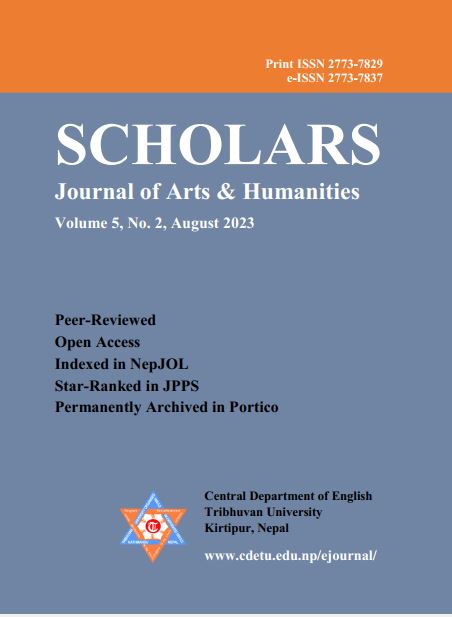Female Subjectivity and Body Politics in Chimamanda Ngozi Adichie's Zikora
DOI:
https://doi.org/10.3126/sjah.v5i2.57497Keywords:
Female Body, subjectivity, body politics, socio-political relations, gender relationsAbstract
This paper examines the pregnant female body in Chimamanda Ngozi Adichie's Zikora. The protagonist's experiences of loneliness, abandonment and struggle during her pregnancy are situated within diverse socio-political relations, including patriarchy, sexuality, immigrant status, romance, transnational background and generation gaps. Drawing on critical insights from body politics, especially Elaine Scarry's concept of conscious body, Michel Foucault's notion of body discipline and Elizabeth Grosz's phenomenological reading of lived bodies, the analysis explores how the protagonist Adichie challenges the traditional understanding of the female body as a mere biological object. The paper argues that through her bodily experiences, the protagonist gains agency to critique and reassess gender relations and stereotypes. The journey of self-discovery and subjectivity emerges as the protagonist's aching body becomes a window to perceive existing relationships and meanings, resulting in a revitalized understanding of her own body and its significance.
Downloads
Downloads
Published
How to Cite
Issue
Section
License

This work is licensed under a Creative Commons Attribution 4.0 International License.
© Central Department of English, Tribhuvan University and Authors




